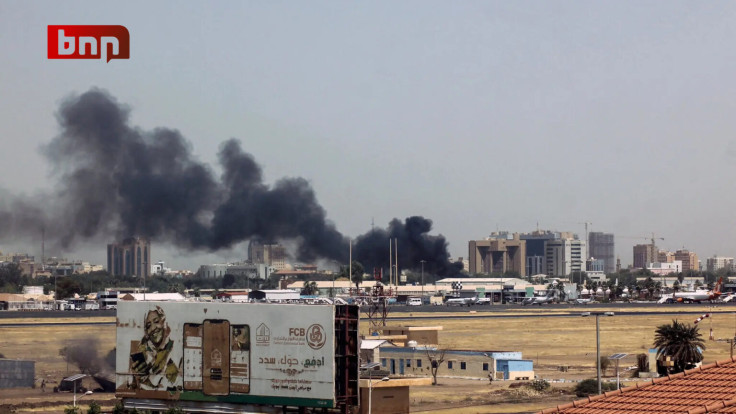Sudanese citizens dying and hungry as violent conflict rages on
A UN report further stated that more than 4.3 million people have been displaced so far.

Months of war have left Sudanese citizens wanting food and healthcare, according to the United Nations. Over a million people have fled their homes since the beginning of the war.
The UN held a meeting on Tuesday and warned that the situation in the country is spiralling out of control. It said that more than 4,000 people have been killed and millions have been forced to flee their homes in search of safety.
"The remains of many of those killed have not been collected, identified, or buried," said Elizabeth Throssell, spokesperson for the High Commissioner for Human Rights, during a press conference in Geneva.
According to a report by the UNHCR refugee agency, more than 4.3 million people have been displaced so far.
"Time is running out for farmers to plant the crops that will feed them and their neighbours. Medical supplies are scarce. The situation is spiralling out of control," UN agencies said in a joint statement.
"People are dying because they cannot access health care services and medicine. And now, because of the war, Sudan's children are wasting away for lack of food and nutrition," it added.
Since April 2023, there has been an ongoing conflict between the Sudanese Armed Forces and the Rapid Support Forces in Sudan. The fighting was fuelled by the dismissal of then-Vice President Riek Machar and the members of the Nuer group cabinet.
The conflict first escalated in the capital city, Khartoum, and has since spread to dominate densely populated urban areas. Several reports have claimed that the Darfur region has also seen ethnic violence.
Earlier, the United Nations Population Fund (UNFPA) had warned that the healthcare sector in Sudan has been pushed "to the brink of collapse." The lack of medical and emergency assistance has left millions of people in a precarious situation.
Cities in the Darfur and Kordofan regions have seen looting on large scales, and the lack of basic facilities such as electricity and water supply has only added to the woes. The number of sexual assault cases being reported has also increased by 50 per cent, per the UNFPA.
Tensions between Sudan's army and the Rapid Support Forces (RSF) had been building for months before the situation spiralled into a full-blown conflict. The RSF and the army together toppled a civilian government in an October 2021 coup.
Sudan was already one of the world's most impoverished countries, and the latest conflict has only worsened the situation. The county is, in fact, one of the 18 hunger hotspots across the globe.
The conflict in Sudan has disrupted essential activities such as agriculture and product exchange as people are forced to flee the region, are directly attacked, or face movement restrictions.
"The use of explosive ordnance and siege tactics in several hunger hot spots continues to push people into catastrophic levels of acute food insecurity," revealed a recent report by the World Food Programme (WFP).
The conflict has also led to more than 25 million people seeking humanitarian aid and assistance. The United States and Saudi Arabia have tried to intervene to try to get the warring parties to stick to cease-fire agreements, but all attempts have been unsuccessful so far. There have been at least nine cease-fire agreements to date, but nothing has come out of these agreements.
Humanitarian agencies have also been struggling to provide assistance to people because of looting and bureaucratic hurdles.
The military has played a significant role in Sudan's politics since its independence in 1956. It has seen as many as 16 attempted coups. Its neighbours, including Ethiopia, Chad, and South Sudan, have also seen similar political upheavals, according to a report in Aljazeera.
© Copyright IBTimes 2025. All rights reserved.




















